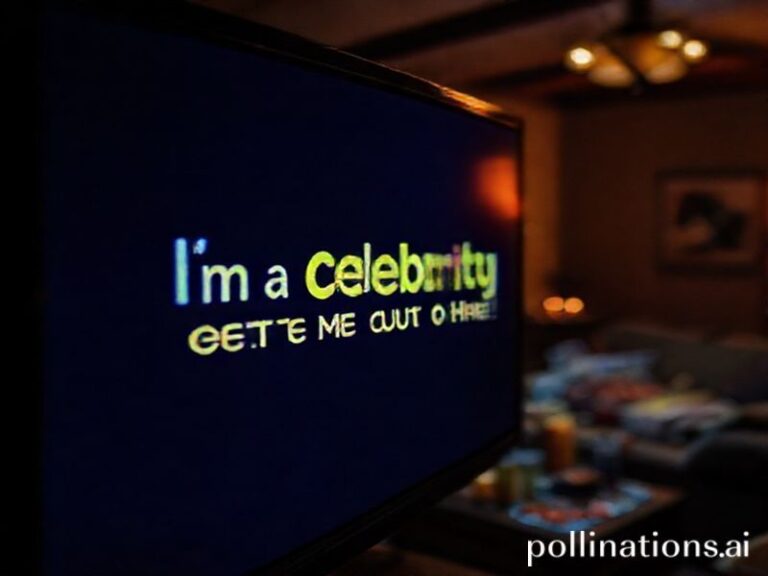Totalsportek: The Borderless Republic Where Football Streams Free and Lawyers Weep
The Glorious, Illegal Afterlife of Football: A Totalsportek Travelogue
By Dave’s Locker Foreign Desk
Somewhere between a Moldovan data center and a server rack in Curaçao—jurisdiction shopping at its most romantic—the website Totalsportek continues to thrive like a cockroach after nuclear winter. It is, depending on which intellectual-property lawyer you ask, either the last true champion of the people’s game or a parasitic tapeworm wrapped lovingly around the small intestine of global sports broadcasting. The truth, as ever, is more profitable.
Totalsportek is not a company so much as a weather system: a low-pressure zone that drifts across continents, raining free Champions League streams on Lagos minibus drivers, La Liga on Lebanese baristas, and the occasional third-tier Icelandic handball playoff on whoever still believes handball deserves tiers. One moment its URL ends in .to, the next in .io, the next in .cx—top-level domains shuffling faster than a FIFA executive’s shell corporations. The effect is geopolitical Whac-A-Mole. UEFA swings the mallet; the mole dodges; the crowd roars louder than at any actual match.
In theory, this is a story about copyright. In practice, it is the story of late-stage capitalism doing what it does best: pricing its own customers out of the market and then acting shocked when those customers set up camp in the gray economy. A decade ago, an Indonesian college student could watch the Premier League legally for the price of three packets of Indomie. Today the same season pass costs roughly 47 packets, a kidney lobe, and your grandmother’s maiden name. Totalsportek, meanwhile, asks only that you endure five pop-ups promising hot singles in Novosibirsk and a banner ad for a cryptocurrency that definitely isn’t a rug pull. (Spoiler: it is.)
Global south solidarity? Not quite. The site is reportedly administered by a loose confederation of expat coders from the Balkans, Southeast Asia, and the greater Manchester diaspora—digital mercenaries who long ago realized that nationalism pays worse than anonymity. They operate on the ancient principle that if Rupert Murdoch wants to geo-fence joy, someone else will happily sell bolt cutters. Their customer base spans 195 countries and one international space station crew that, according to leaked NASA logs, once streamed the World Cup on a delay because orbiting Earth plays havoc with latency.
The broadcasters’ response has been an exquisite masterclass in missing the point. Disney-owned networks lobby the USTR to label streaming piracy a “national security threat,” as though a grainy 480p feed of Burnley vs. Bournemouth were on par with enriched uranium. Meanwhile, in Brussels, regulators draft Digital Services Acts the size of phone books, apparently unaware that every new paragraph births a workaround quicker than you can say “VPN exit node in Vanuatu.” The arms race is so lopsided that it feels like watching a T-rex try to swat a mosquito with a non-fungible gavel.
And yet, Totalsportek is not merely a crime; it is a mirror. It reflects an industry that turned the planet’s most democratic sport into a gated community with annual dues rivaling the GDP of Tonga. It reflects a generation raised on the expectation that culture should be accessible, searchable, and—above all—skippable after three seconds of buffering. Most tellingly, it reflects the stubborn human refusal to accept that anything watched by 3.5 billion people could possibly belong exclusively to a consortium of hedge funds.
The long-term prognosis is bleakly comic. Analysts predict that by 2030, legitimate sports revenue will surpass the oil trade, at which point the average fan will need a sovereign wealth fund to afford a derby ticket. The pirates, naturally, will still be there, probably broadcasting from a satellite stitched together with duct tape and moral relativism. Their final irony: the moment football becomes too expensive to watch legally, the only people left actually watching will be doing so illegally. The beautiful game, sponsored by nobody, available to everybody, buffering just enough to remind us that utopia still has loading screens.
In the meantime, somewhere tonight, a trucker in Paraguay will pull over, toggle his cracked Samsung to Totalsportek, and watch Real Madrid concede a late equalizer. He will swear in Spanish, Guaraní, and the universal tongue of the robbed bettor. And for 90 minutes plus stoppage time, the borderless Republic of Free Streams will live on—until the next domain seizure, the next pop-up, the next refresh.







